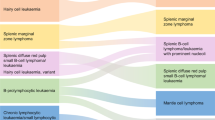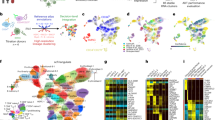Abstract
The entire protein-coding region was divided into 45 fragments, separately amplified and analyzed for polymorphism by the PCR-SSCP (single-strand conformation polymorphism) method. The effect of polymorphism mismatching on the clinical outcome of unrelated bone marrow transplantation was studied to clarify whether products from mtDNA become minor antigens. Variability in PCR-SSCP pattern combinations of the 45 fragments suggests that each individual has a different polymorphism combination in the protein-coding region if all the coding regions were compared at the nucleotide sequence level. Nonsynonymous polymorphisms were found at relatively high frequency in MTATP8 and MTND3. Both the polymorphisms with and without substitution matched the peptide-binding motifs of HLA-A*0201. The effects of the polymorphism matching were retrospectively analyzed in 340 recipients transplanted with HLA-A, -B, -DRB1 allele-matched bone marrow from unrelated donors. There were no effects of polymorphism matching on the incidence of acute GVHD and cumulative disease-free survival. These results suggest that polymorphisms which generate peptides, with and without substitutions, that bind the same HLA molecule hardly influence GVHD because the difference between the HLA-peptide complexes is minute. Bone Marrow Transplantation (2001) 28, 603–607.
This is a preview of subscription content, access via your institution
Access options
Subscribe to this journal
Receive 12 print issues and online access
$259.00 per year
only $21.58 per issue
Buy this article
- Purchase on Springer Link
- Instant access to full article PDF
Prices may be subject to local taxes which are calculated during checkout
Similar content being viewed by others
References
Sasazuki T, Juji T, Morishima Y et al. Effect of matching of class I HLA alleles on clinical outcome after transplantation of hematopoietic stem cells from an unrelated donor New Engl J Med 1998 339: 1177–1185
Goulmy E, Shipper R, Pool J et al. Mismatches of minor histocompatibility antigens between HLA-identical donors and recipients and the development of graft-versus-host disease after bone marrow transplantation New Engl J Med 1996 334: 281–285
Tseng LH, Lin MT, Martin PJ et al. Definition of the gene encoding the minor histocompatibility antigen HA-1 and typing for HA-1 from genomic DNA Tiss Ant 1998 52: 305–311
Morse MC, Bleau G, Dabhi VM et al. The COI mitochondrial gene encodes a minor histocompatibility antigen presented by H2-M3 J Immunol 1996 156: 3301–3307
Dabhi VM, Lindahl KF . CTL respond to a mitochondrial antigen presented by H2-Db Immunogenetics 1996 45: 65–68
Davies JD, Wilson DH, Hermel E et al. Generation of T cells with lytic specificity for atypical antigens. I. A mitochondrial antigen in the rat J Exp Med 1991 173: 823–832
Tokunaga K, Ishikawa Y, Ogawa A et al. Sequence-based association analysis of HLA class I and II alleles in Japanese supports conservation of common haplotypes Immunogenetics 1997 46: 199–205
Falk K, Rotzschke O, Stevanovic S et al. Allele-specific motifs revealed by sequencing of self-peptides eluted from MHC molecules Nature 1991 351: 290–296
Miconnet I, Servis C, Cerottini JC et al. Amino acid identity and/or position determines the proteasomal cleavage of the HLA-A*0201-restricted peptide tumor antigen MAGE-3271–279 J Biol Chem 2000 275: 26892–26897
den Haan JMM, Meadows LM, Wang W et al. The minor histocompatibility antigen HA-1: a diallelic gene with a single amino acid polymorphism Science 1998 279: 1054–1057
den Haan JMM, Sherman NE, Blokland E et al. Identification of a graft-versus-host disease-associated human minor histocompatibility antigen Science 1995 268: 1476–1480
Wang W, Meadows LR, den Haan JMM et al. Human H-Y: a male-specific histocompatibility antigen derived from the SMCY protein Science 1995 269: 1588–1590
Meadows L, Wang W, den Haan JMM et al. The HLA-A*0201-restricted H-Y antigen contains a post translationally modified cysteine that significantly affects T cell recognition Immunity 1997 6: 273–281
Pierce RA, Field ED, den Haan JMM et al. The HLA-A*0101-restricted HY minor histocompatibility antigen originates from DFFRY and contains a cysteinylated cysteine residue as identified by a novel mass spectrometric technique J Immunol 1999 163: 6360–6364
Acknowledgements
This work was supported in part by a research fund for Allergy and Organ Transplantation from the Ministry of Health and Welfare of Japan.
Author information
Authors and Affiliations
Rights and permissions
About this article
Cite this article
Ishikawa, Y., Kashiwase, K., Okai, M. et al. Polymorphisms in the coding region of mtDNA and effects on clinical outcome of unrelated bone marrow transplantation. Bone Marrow Transplant 28, 603–607 (2001). https://doi.org/10.1038/sj.bmt.1703199
Received:
Accepted:
Published:
Issue Date:
DOI: https://doi.org/10.1038/sj.bmt.1703199
Keywords
This article is cited by
-
Polymorphisms in TNFA and TNFR2 affect outcome of unrelated bone marrow transplantation
Bone Marrow Transplantation (2002)



